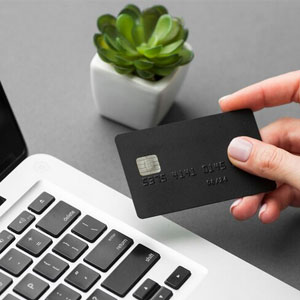Student Credit Cards Vs Forex Cards: What should students pick?
 Every year, thousands of students move to foreign countries for higher education. Studying abroad is an exciting venture for students- not only from academic point of view but also as cultural exploration. Among the many decisions that students need to take before moving abroad, financial decision is perhaps the most important one. While the cost of the course, hostel lodging, transportation, study material, etc. can be covered by an education loan, students still need funds for their day-to-day requirements. Apart from cash, student credit cards and forex cards are two popular ways how students can carry money abroad.
Every year, thousands of students move to foreign countries for higher education. Studying abroad is an exciting venture for students- not only from academic point of view but also as cultural exploration. Among the many decisions that students need to take before moving abroad, financial decision is perhaps the most important one. While the cost of the course, hostel lodging, transportation, study material, etc. can be covered by an education loan, students still need funds for their day-to-day requirements. Apart from cash, student credit cards and forex cards are two popular ways how students can carry money abroad.
So, which of these is better for students- student credit card or forex card? Let us first understand what these are and how they work.
Student Credit Cards are designed to meet the requirements of college students and offer benefits in the form of reward points, cashback or discount. They function in the same way as a normal credit card. You can use your available credit limit to pay for online and offline spends. Most of these either would be entry-level cards or secured cards offered against a fixed deposit.
On the other hand, Forex Cards are prepaid cards wherein you load the card with a foreign currency of your choice. Some multi-currency forex cards can be loaded with multiple currencies at the same time. Students can use forex cards just like debit cards or credit cards to pay for their expenses in the local currency of a foreign country or to withdraw cash from a local ATM.
Pros and Cons of a Student Credit Card
Pros
Convenience and Flexibility: Students credit cards provide easy access to funds without having to carry a wad of cash everywhere you go. You can swipe the card at merchant outlets or use them to make payments online.
Builds Credit Profile: Student credit cards offer an excellent credit building opportunity to students. Starting early, students can easily learn financial responsibility. By making timely payment of their credit card bills, students can build a good credit score from scratch.
Rewards and Other Benefits: Along with the convenience of hassle-free payments, students can also earn reward points, cashback or discount, which could help them save a portion of their expenses.
Cons
High Forex Mark-up Fee: Most student credit cards charge a foreign currency mark-up fee, which can be as high as 3.5% of the transaction amount. This is one of the main drawbacks of using a student card in a foreign country.
Finance Charges: Credit cards carry high finance charges, usually ranging from 2.5% to 3.9% per month. Though this charge is applicable only when you fail to pay the total amount due on your card, it leads to the risk of debt, especially for students with less or no income. Reckless use of student credit cards could lead to hefty charges and also damage your credit score.
Pros and Cons of a Forex Card
Pros
Locked-in Exchange Rates: Since forex cards are prepaid cards, the exchange rate prevalent on the day of loading the card is locked-in. So even if the exchange rates shoot up later, students will not have to bear the added financial burden. This not only shields students from currency fluctuations but also helps in budgeting and avoiding unexpected expenses.
Lesser Risk of Overspending: Unlike credit cards that work on the revolving credit model, forex cards are preloaded with a specific amount, thus reducing the risk of overspending or falling into debt.
No Forex Mark-up Fee: Most forex cards do not charge forex mark-up fee as long as you make the payment in pre-loaded currency, which makes them a cost-effective choice for international transactions.
Cons
Limited Acceptance: Forex cards may not be as widely accepted at ATMs and most point-of-sale locations as credit cards or debit cards. Hence, it is essential for students to be aware of the acceptance levels of forex cards in their destination country.
No Credit Building: Unlike credit cards, forex cards do not contribute to building a credit history. For students who plan to stay abroad for an extended period, this might be a factor to consider.
Also Read: Travelling abroad? Load your cash on forex cards
What should students pick?
Choosing between a student credit card and a forex card depends on individual preferences, spending habits, and the financial situation of the student. If you do not plan on getting a job and earning your own money along with the studies, a forex card could possibly be the better option as it minimizes additional costs. However, if you are focused on building credit, you may consider getting a student card to cover certain small expenses. We do not recommend putting big-ticket purchases or regular expenses on student cards, unless the card carries low or no forex mark-up charges, as it could add to the cost of your purchase.
Ultimately, a combination of both types of cards might provide a well-rounded financial strategy, offering the advantages of credit building along with the cost-effectiveness of a forex card. Whichever option you choose, it is crucial to do your research and select a card with favourable terms and conditions that not only provide financial convenience in a foreign country but also help you save a considerable amount.

.jpg)